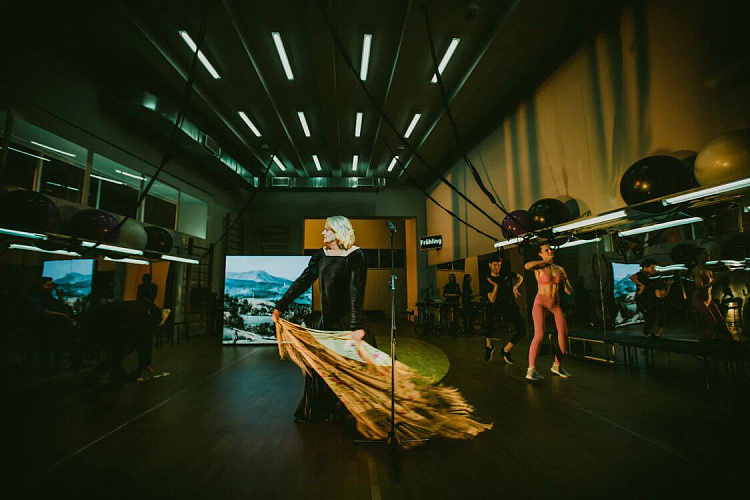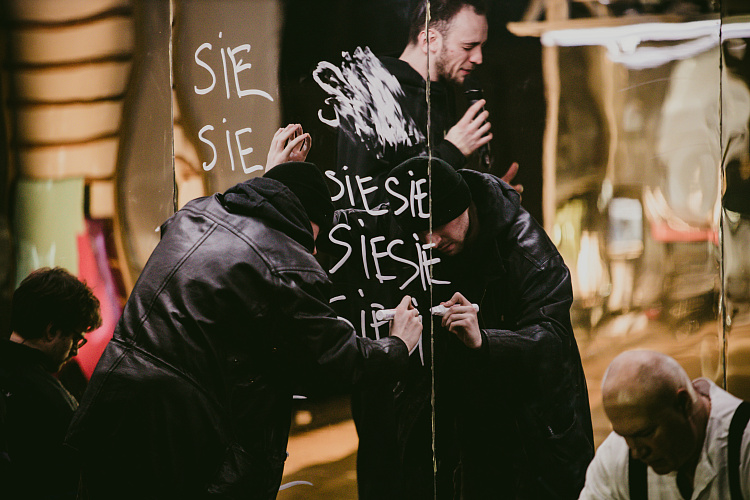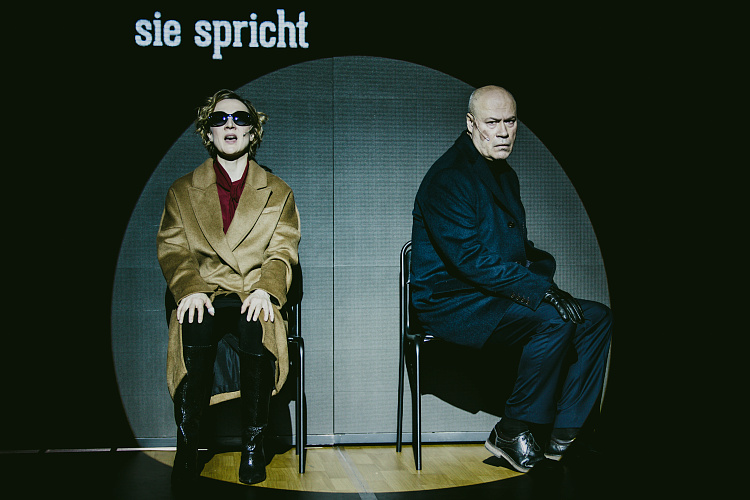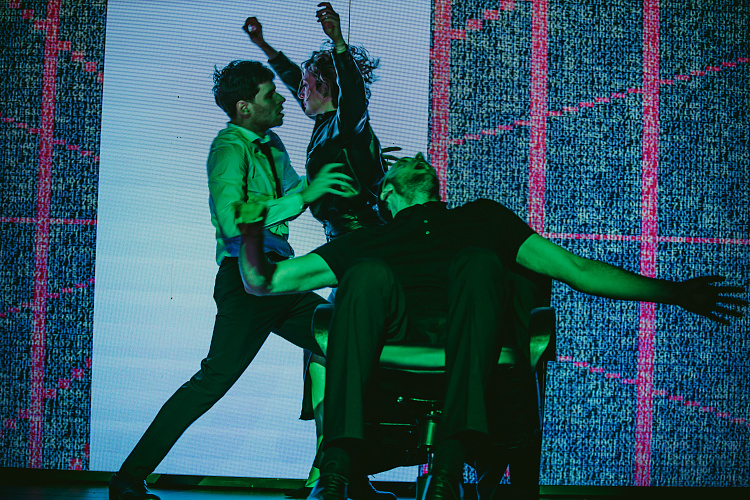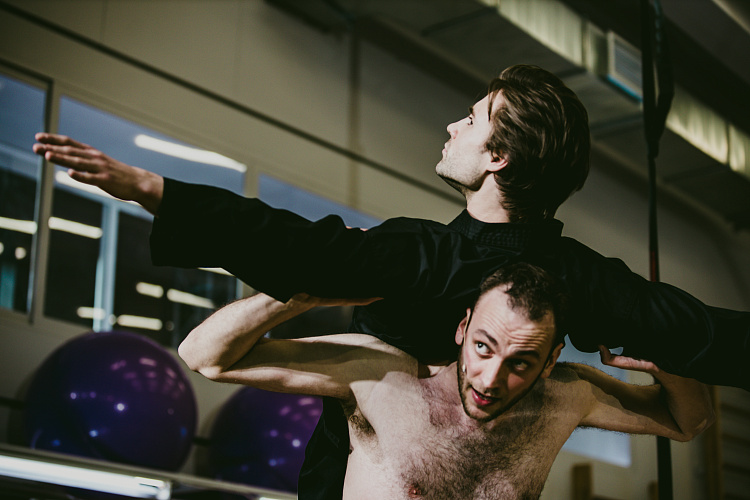Decameron
It is considered the bible of storytelling par excellence and one of the great story arsenals of world literature: Giovanni Boccaccio's Decameron (Декамерон), written in the years between 1349 and 1353. Its frame story begins with the plague in Florence, from which ten young women and men flee to a country estate outside the city. There they tell each other ten stories for ten days (Decameron translates as "ten-day work"). They are all survival narratives that celebrate passionate love. From a total of 100 novellas, the Russian director Kirill Serebrennikov has selected ten stories for ten German and Russian players and translated them into the present day. Not on a Tuscan country estate, but in a mundane gymnasium, figures of different ages and social backgrounds meet. Here, five old women also train their bodies - routines against ageing, death. The threat is not located in an outside, but in the transient and vulnerable physique. Kirill Serebrennikov thus shifts the focus from an anti-clerical, subversively erotic orientation to an uncanny, existential view of the body and time, musically structured by the change of seasons. The music is by Daniel Freitag, who set passages of text to music especially for the production. What still has meaning in the face of transience? Love. The spoken word.
Decameron (Декамерон) is a German-Russian co-production by Deutsches Theater and the Moscow Gogol Center and the result of a unique collaboration under difficult conditions. The production was already planned for the 2018/19 season at the DT; it was to be Kirill Serebrennikov's first acting production in Germany. But the project failed due to a criminal case against the internationally renowned theatre and film director. He had been placed under house arrest by the Russian authorities from 2017 to 2019. The brief hope that rehearsals could finally start in Germany when the house arrest ended was dashed by a renewed ban on leaving the country. Without further ado, the DT and the Moscow Gogol Center decided to cooperate and to move the rehearsals to Moscow with a German-Russian ensemble. Finally, in March, Decameron (Декамерон) celebrated its successful premiere at the Deutsches Theater. A few days later, the first Corona lockdown occurred and further performances or even the premiere in Moscow became impossible. More than 1.5 years later, the premiere in Moscow could be made up for.
Premiere
08 March 2020
Deutsches Theater
Moskau-Premiere at Gogol Center Moscow
06 September 2021
Co-production with the Gogol Center Moscow

